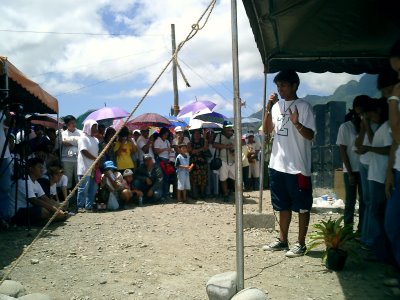Blood Donation Frequently Asked Questions
What are the minimum requirements to become a blood donor?
You must be at least 17 years of age, a minimum of 110 pounds, and in basic good health.
Will donating blood hurt?
You may feel a slight sting in the beginning lasting only a couple of seconds, but there should be no discomfort during the donation.
Are blood donors paid?
No. Blood collected for transfusion in the Philippines is given by volunteer blood donors.
How badly is blood needed?
Blood supplies can vary depending on the region and time of year. As donor qualifications continue to become stricter and as the donor population ages, our nation is at risk of a low blood supply. If you are eligible, your blood donations are needed.
Why are there often blood shortages?
Most blood centers strive to maintain an optimum inventory level of a three-day supply. Due to unpredictable demands from trauma incidents the inventory fluctuates hourly. When the blood supply drops below a three-day level, blood centers begin alerting local donors to increase the inventory to a safe operating level.
Can I get AIDS from donating blood?
No. There is no risk of contracting AIDS or any other disease through the donation process. Each collection kit is sterile, pre-packaged and used only once. Do I have enough blood in my body to donate? Yes. The body contains 10 to 12 pints of blood. Your whole blood donation is approximately one pint.
How much blood is taken?
For a whole blood donation, approximately one pint (which weighs about one pound) is collected. For a platelet donation, the amount collected depends on your height, weight and platelet count.
How much time does it take for my body to replace the blood that I donated?
Not long at all. The volume of fluids will adjust within a few hours of your donation."
Can I get AIDS from donating blood?
No. There is no risk of contracting AIDS or any other disease through the donation process. Each collection kit is sterile, pre-packaged and used only once.
Do I have enough blood in my body to donate?
Yes. The body contains 10 to 12 pints of blood. Your whole blood donation is approximately one pint.
How much blood is taken?
For a whole blood donation, approximately one pint (which weighs about one pound) is collected. For a platelet donation, the amount collected depends on your height, weight and platelet count.
How much time does it take for my body to replace the blood that I donated?
Not long at all. The volume of fluids will adjust within a few hours of your donation.
How often may I donate?
You may donate whole blood once every 56 days, which allows plenty of time for your red cells to be replenished. Platelet (apheresis) donors may donate more frequently -- as often as once every seven days and up to 24 times per year. This is because the body replenishes platelets and plasma more quickly than red cells. Platelets will return to normal levels within about 72 hours of donating. Plasma (the liquid portion of your blood) will return to normal levels within a couple of days. Red blood cells (the oxygen-carrying cells) will take approximately two weeks to reach their normal levels.
How long until my blood is used?
Most blood donations are processed and available for use within 48 hours.
Does donated blood stay on the shelf indefinitely until it is used?
No. Each unit of whole blood normally is separated into several components. Red blood cells may be stored under refrigeration for a maximum of 42 days, or they may be frozen for up to 10 years. Red cells carry oxygen and are used to treat anemia. Platelets are important in the control of bleeding and are generally used in patients with leukemia and other forms of cancer. Platelets are stored at room temperature and may be kept for a maximum of seven days. Fresh frozen plasma, used to control bleeding due to low levels of some clotting factors, is kept in a frozen state for usually up to one year. Cryoprecipitated AHF, which contains only a few specific clotting factors, is made from fresh frozen plasma and may be stored frozen for up to one year. Granulocytes are sometimes used to fight infections, although their efficacy is not well established. They must be transfused within 24 hours of donation.
Are the health history questions necessary every time I donate?
To ensure the safest possible blood supply, all donors must be asked all the screening questions at each donation. The DOH requires that all blood centers conform to this practice.
Is there anything I should do before I donate?
Be sure to eat well at your regular mealtimes and drink plenty of fluids.
What does the term "donor deferral" mean?Individuals disqualified from donating blood are known as "deferred" donors. A prospective donor may be deferred at any point during the collection and testing process. Whether or not a person is deferred temporarily or permanently will depend on the specific reason for disqualification (e.g., a person may be deferred temporarily because of anemia, a condition that is usually reversible). If a person is to be deferred, his or her name is entered into a list of deferred donors maintained by the blood center, often known as the "deferral registry." If a deferred donor attempts to give blood before the end of the deferral period, the donor will not be accepted for donation. Once the reason for the deferral no longer exists and the temporary deferral period has lapsed, the donor may return to the blood bank and be re-entered into the system.
Those who may be deferred include:
*Anyone who has ever used intravenous drugs (illegal IV drugs)
* Men who have had sexual contact with other men since 1977
* Anyone who has ever received clotting factor concentrates
* Anyone with a positive test for HIV (AIDS virus)
* Men and women who have engaged in sex for money or drugs since 1977
If I just received a flu shot, can I donate blood?Yes. There is no waiting period to donate after receiving a flu shot.
If I have a cold or the flu, can I donate blood?
In order to donate, blood centers require that you be in generally good health (symptom-free) and recommend that you are feeling well.
Can I still donate if I have high blood pressure?
Yes, if your blood pressure in under control and within the limits set in the donation guidelines.
What if I'm taking aspirin or medication prescribed by my doctor?
Aspirin and ibuprofen will not affect a whole blood donation. Apheresis platelet donors, however, must not take aspirin or aspirin products 36 hours prior to donation. Many other medications are acceptable. It is recommended that you call the donor center ahead of time to inquire about any medications you are taking.
What if I have anemia?
You cannot give blood if you have anemia. However, this can often be a temporary condition. Your hemoglobin will be tested before you donate to make sure it is at an acceptable level.
How can I increase my iron level?
Donors may be deferred from donating due to a low hematocrit (iron) level. This restriction is for the safety of the donor and ensures that after donation, the donor's hematocrit level will still be within the normal range for a healthy adult. Since hematocrit levels can fluctuate daily, a deferral for a low hematocrit level does not mean a donor is anemic. A donor may help increase his or her hematocrit levels by eating foods high in iron such as red meat, dark green vegetables and raisins or by taking a multivitamin that contains iron.
How will I feel after I donate?
Most people feel great after giving blood. If you feel any abnormal symptoms, let a staff member at the blood donation center or blood drive know. You should avoid lifting heavy objects or strenuous exercise for the next 24 hours; otherwise you can resume full activity as long as you feel well.
Where can I donate blood?
The Kapamilya Bloodletting Activity this Saturday, April 22, 2006, will be held in Cebu's biggest shopping malls:
* Ayala Center Cebu (Lagoon Area)
* SM City Cebu
* EMall Grounds (fronting GSIS)
What can you do if you aren't eligible to donate?
While a given individual may be unable to donate, he or she may be able to recruit a suitable donor. Blood banks are always in need of volunteers to assist at blood draws or to organize mobile blood drives. In addition, monetary donations are always welcome to help ensure that blood banks can continue to provide safe blood to those in need.
Thursday, April 20, 2006
Sunday, April 09, 2006
Guinsaugon's 40th Day

Guinsaugon graduates' homecoming aboard SkyPatrol Cebu

A survivor lashes out at local government officials for failing to attend to landslide victims's most basic needs

Survivors cross the river to spend the day in the landslide site

The Guinsaugon Graduates: Elizabeth Ong, Myren Celmar, Thelma Libaton and Joniel Esclavosa

Guinsaugon: A Sacred Sanctuary
Subscribe to:
Comments (Atom)






